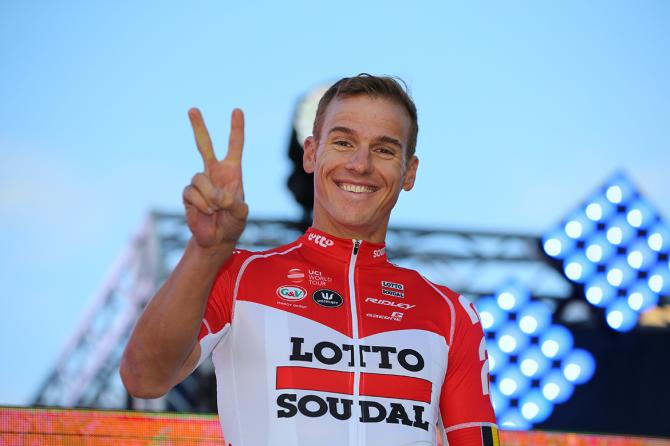Adam Hansen: The five races that changed my life
Australian reflects on his career highlights
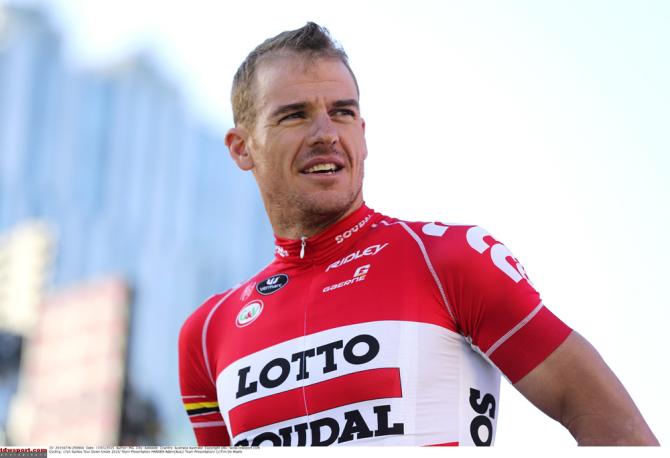
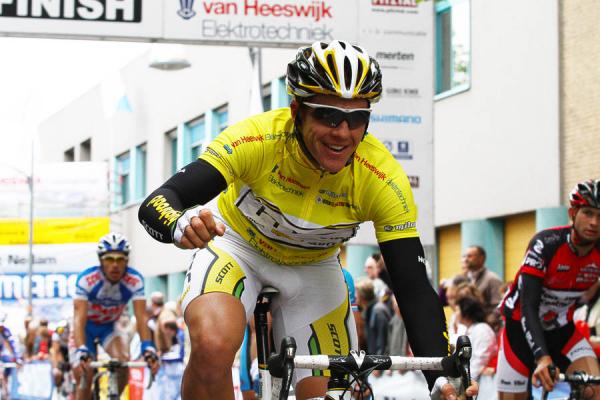
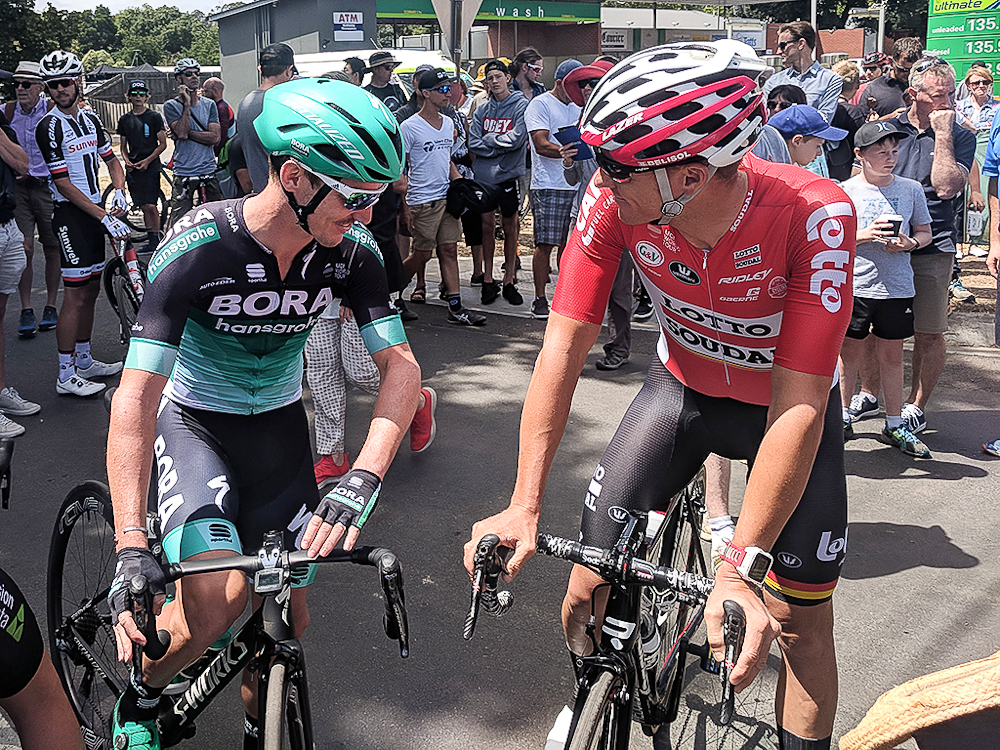
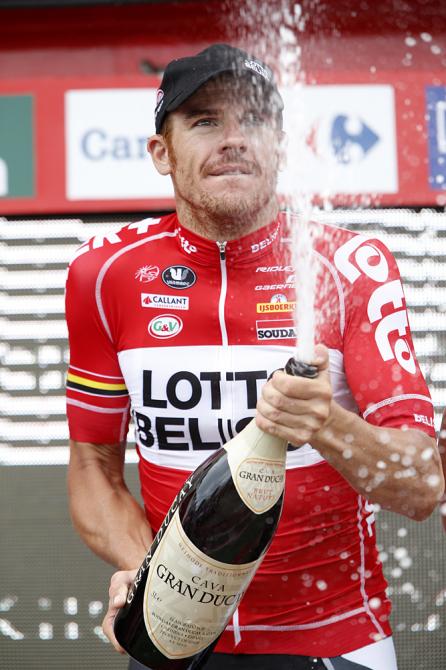
With a career spanning two decades, and the record for the most consecutive Grand Tours completed, Adam Hansen (Lotto Soudal) has had a unique and prestigious path within professional cycling. The 37-year-old has ridden alongside some of the greatest stars in recent years, and enjoyed success in his own right, and at the Tour Down Under he sat down with Cyclingnews to reveal the five races that changed his life the most.
National championships 2006
My first national championships. Back then I wasn't on a team and I was a bit of a nobody if I'm honest. The guy who won the U23 was Will Walker, and back then the U23 and the elites would race together, and the first U23 rider to cross the line became the champion of that level. I had no idea that those were the rules but I attacked with around 15 kilometres from the finish, and on this little uphill section, Walker came across and I jumped on his wheel.
At the top of the hill, I looked back and I could see that another three riders were working their way towards us. I thought that if I stayed with Walker I'd lose the sprint because I was right on my limit. I decided to take it easy in order to recover and I eased my way back to the three chasers. It was such a stupid move because they were on their knees by the time they reached me. Walker went to the finish and won but as he was U23 and not an elite all I needed to do was stay on his wheel and I would have been Australian champion. It's crazy but I had no idea.
At the presentation, they gave the elite jersey to Russell Van Hout, who won the sprint for second. I finished fourth over the line but that equated to second in the elites, because Wesley Sulzberger won the sprint for second, he too was a U23 rider. Does that make sense? I still can't get my head around it. At the time I was riding for an amateur team in Austria so this was still a massive result and huge experience for me. It was my first major nationals and I was going up against guys like Henk Vogels, Matt Wilson, Mathew Hayman, and Robbie McEwen.
It was surreal racing against those guys to be honest because I didn't know any of them. When I made it into the winning break, Vogels got angry with me at one point because I was riding too hard. And when that happened another rider came up to me and said: "That's Henk Vogels, you should do what he says." I came to learn that Henk was right, that you shouldn't ride too hard when you're in a break, but I found it amusing that another rider would take it upon himself to chime in. Overall, that experience taught me that I could aim for something better in cycling. I never imagined I could get a result like that but it gave me more confidence and it got me onto a Continental team for the next three seasons. If only I'd held Walker's wheel though…
Giro d'Italia: Stage 7, 2013
What do you want to know because I can remember everything about this race. I remember knowing I'd be in the break, and I was so confident I posted a message on Twitter that morning announcing my plans. I'd been in so many breaks up until that point but never made it to the finish but that day everything worked out. Emanuele Sella was in the move as well and we all knew that the end was super hilly. I had done the Giro in 2008 when he'd won two stages - this was before he tested positive - and we were struggling to make the time limit that year because of him. Forty to fifty riders that year were holding onto cars just to make the time cut. It was ludicrous. He was doing it day after day and at the time I thought I'd never come back to the Giro.
Fast forward to 2013 and I had so much anger in that break and I just didn't want him to win. When we reached the hills I made a few surges and after a while, it would be just the two of us left. We were the last two standing. I was lucky that it was raining because on the super steep climbs he couldn't get out of the saddle and had to climb seated. That meant he couldn't climb in his natural style, while I could power up the ascents without having to worry about whether he could accelerate. That gave me an advantage, so I just kept hitting him and hitting him on the climbs and eventually, he crashed on the descent. It was too far to go solo to the finish so at first, I waited. Di Luca's Vini Fantini team were chasing us and we only had around a three-minute lead and there was still a fair way to go. We worked together until the final climb of the Santa Maria de Criptis. That's where I attacked again and finally dropped him.
The latest race content, interviews, features, reviews and expert buying guides, direct to your inbox!
When I came to the line I couldn't believe. I was sure I'd get a flat or something would happen because as a domestique you're always going in breaks but not succeeding. I kept looking down, waiting to see my tires go down. As a domestique you do so much for your team, you sacrifice everything you have so to win a stage in a race like the Giro, it felt like cycling was paying you back. The Giro was and is my favourite race and to top it all my family was there to see it. The emotions were crazy.
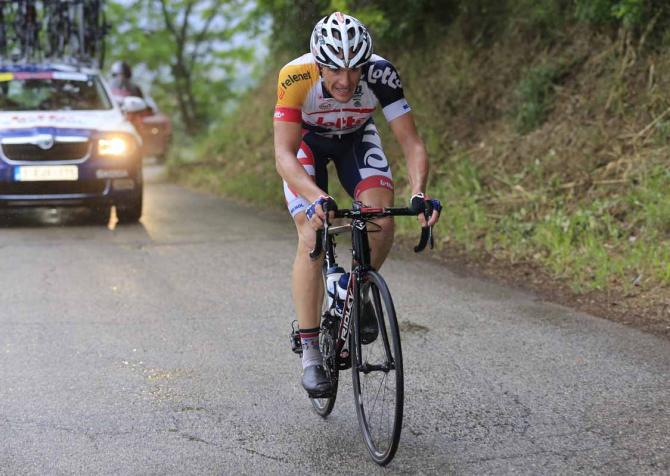
Adam Hansen in the 2013 Giro d'Italia en route to victory. Photo: Bettini
Vuelta a España: Stage 19, 2014
This was probably my favourite win. I attacked from the group of favourites on the final climb and stayed away and that win really gave me the confidence, relatively late on in my career, that I could do things in the finals of races. When you win from a break you of course have to be strong, but you also need the luck to get into that position in the first place. So, to win a stage where you attack from the bunch and stay away, it means that you're not just the strongest from a group of three or four but you're the strongest rider of the entire day. That was a step up for me to win that stage and a really special moment. I knew that all the GC favourites and sprinters were chasing and they were riders like John Degenkolb, Philippe Gilbert and Michael Matthews, plus all their workers.
That win gave me a different position within the team because it meant that I had two Grand Tour stage wins in the bank. It meant that no-one could look at my palmares and say that the Giro win was a fluke. I think it magnified things for me as a rider. I remember laughing to myself with 200m to go because it was only at that point that I could relax.
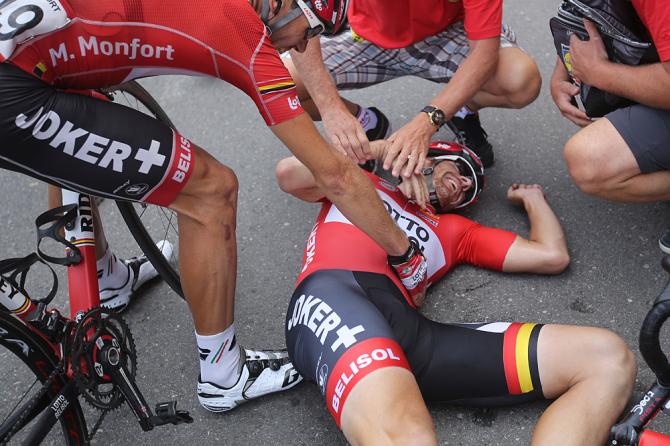
Adam Hansen collapses in joy after his Vuelta a España stage win. Photo: Bettini
Vattenfall Cyclassics 2007
In 2007 I was with T-Mobile, which later became Team High Road. In the first part of the year, I was flying and the team offered a new contract but I decided to wait and see what my options were. Unfortunately, my form dipped later in the year and when it came to a contract offer the money discussed was a lot lower and I really wasn't sure that the team wanted to keep me.
In late summer we went to Vattenfall and in the final, I think it was Paolo Bettini who attacked with a small group. I buried myself to close the gap and I managed to do it because I wanted to help our sprinter as much as possible.
It was only the following year that I found out that the effort I made to close the gap that day saved my career on the team. I was the only rider on the team who was able to close the gap and set up our sprinter, and although we didn't get the result we wanted, that move I made got me my contract for the following year. At the time I didn't know if the sports director was aware I'd chased down the attack but I was blown away that such a small amount of life - a two-minute effort - could have such a drastic effect on my career as a professional rider. If that didn't happen I don't think I'd be sat here.
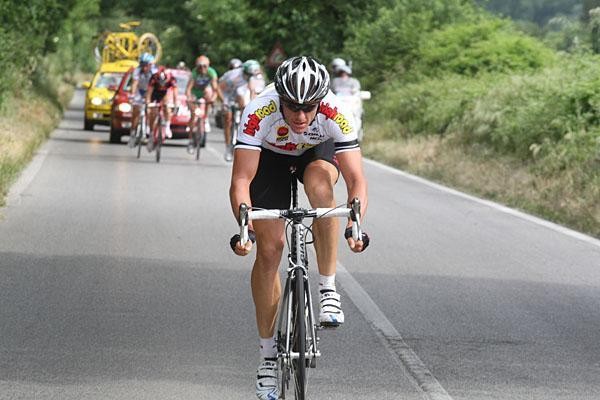
Racing in Europe in 2001
My last one isn't a race. In my first year in Europe, I couldn't finish races. I was hopeless but the overall experience left a huge impression on my life and taught me some valuable lessons about how to be a rider and how to live my life.
At the time I stayed with another young rider and his family in Austria and in the European summer I'd train and race there, and then when the climate changed I'd return home to Australia with the son of the family I stayed with. The family actually ran the team I was riding for but the father didn't really want me for next year. The mother loved me though. I was polite, I had manners and their son was a bit of a nightmare. He was disrespectful, while I'd do any chores I could just to help out. I'd chop wood, do the dishes, cut the grass. In the end, the only reason I managed to get another year on the team was because of how acted. I know that's not a racing example but it taught me a lot about how to treat people and how manners and patience can take you a long way in life. Cycling is a hard enough sport as it is, but I think part of the reason why my career has had the longevity it's had is because of the lessons I learned early on.
